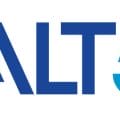Frueqently Asked Questions
Need help? We’ve got you covered!
General Questions
What is iComply?
iComply offers financial compliance solutions, ensuring secure and efficient digital transactions. Our platforms, iComplyKYC™ and Prefacto™, revolutionize compliance, enabling businesses to grow without compliance hurdles.
Why choose iComply over other solutions?
iComply is not just another compliance tool. We accelerate cash velocity. We combine automation, digital security control, and improved transferability, paving the way for the future of secure, efficient digital transactions.
Other solutions rely on APIs and subprocessors to validate sensitive customer data. This creates a web of cybersecurity and data privacy regulatory roadblocks iComply uses edge-computing and artificial intelligence to process, authenticate, and validate sensitive customer data on their own device without leaving your website or application.
Who can benefit from iComply?
Process
How long does the verification process take with iComply?
iComply’s verification process is designed for rapid onboarding, automated KYC reviews and perpetual KYC management to accelerate cash velocity. Thanks to our automated KYC processes and pre-validation workflows, most verifications are completed within seconds allowing your user to complete the entire process in 1-2 minutes. The exact duration may vary based on specific requirements, your system’s unique configuration, and the complexity of the data processing that is required. We prioritize both speed and accuracy to provide a seamless experience for businesses and their customers.
What kind of documents can I verify with iComplyKYC™?
Our platform facilitates robust identity document verification for over 4,000 document types, 142 languages, in 247 countries, ensuring the security and authenticity of key documents essential for compliance. Here is our current global List of Supported Identity Documents.
How is data privacy ensured in iComply?
Data privacy is a cornerstone of our service. We leverage edge computing, artificial intelligence, and robotic process automation to ensure secure transactions. We maintain strict controls in compliance with data privacy regulations for financial services, legal and accounting professionals in Canada, the United States, the United Kingdom, the European Union, and South Africa to prevent unauthorized access to sensitive information.
The following compliance, security, and privacy-related audits and certifications are applicable to the Covered Services. These services are either completed, in progress, or planned:
- FINRA Compliance Vendor Directory: iComply solutions have been reviewed and listed as an approved compliance solution to all members of FINRA (the Financial Industry Regulatory Authority of the United States).
- EU-U.S. and Swiss-U.S. Privacy Shield certification: Customer Data submitted to the Covered Services is within the scope of an annual certification to the EU-U.S. Privacy Shield Framework and the Swiss-U.S. Privacy Shield Framework as administered by the U.S. Department of Commerce.
- ISO 27001/27017/27018 certification: iComply operates an information security management system (ISMS) for the Covered Services in accordance with the ISO 27001 international standard. iComply has not achieved ISO 27001/27017/27018 certification for its ISMS from an independent third party.
- Service Organization Control (SOC) reports: iComply’s information security control environment applicable to the Covered Services is managed in accordance to SOC2 Type 2 standards. iComply is undergoing the SOC2 Type 2 certification process.
Additionally, the Covered Services undergo security assessments by internal personnel and third parties, which include infrastructure vulnerability assessments and application security assessments, on at least an annual basis.
Read more about our Security Privacy, and Architecture (SPARC) here: https://icomplyis.com/sparc/
Integration
How long does the iComplyKYC platform take to set up?
A basic SaaS configuration can be set up within 2-3 business days. To get started with your instance we need to know whether which modules you need, what country will be your home jurisdiction, and any supporting documents requirements your firm requires for initial onboarding, enhanced due diligence, and annual reviews. Our support team is ready to start when you are.
Pro and Enterprise accounts can deploy the entire platform, any single module, or any single service as a single project or across multiple stages to help your firm reduce cost and consolidate your compliance systems. Contact a product specialist to discuss your Pro or Enterprise needs.
Can I integrate iComply with my existing systems?
Yes, our solutions are designed to be flexible and can be integrated with a variety of existing systems to enhance your compliance capabilities.

